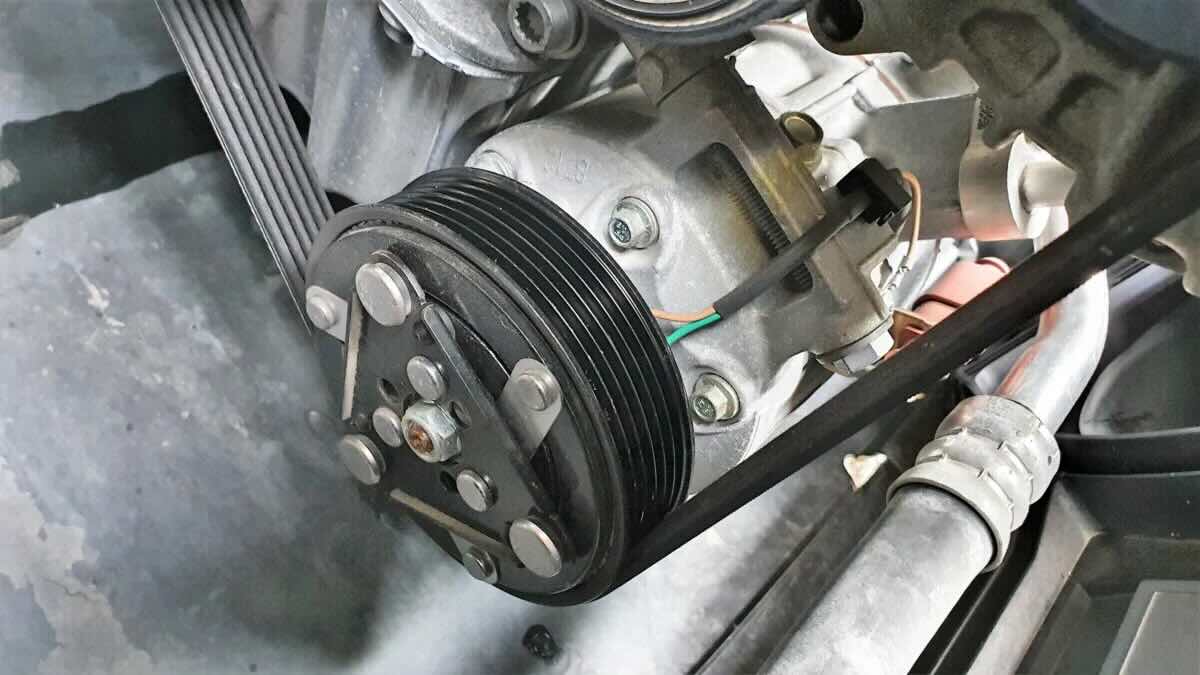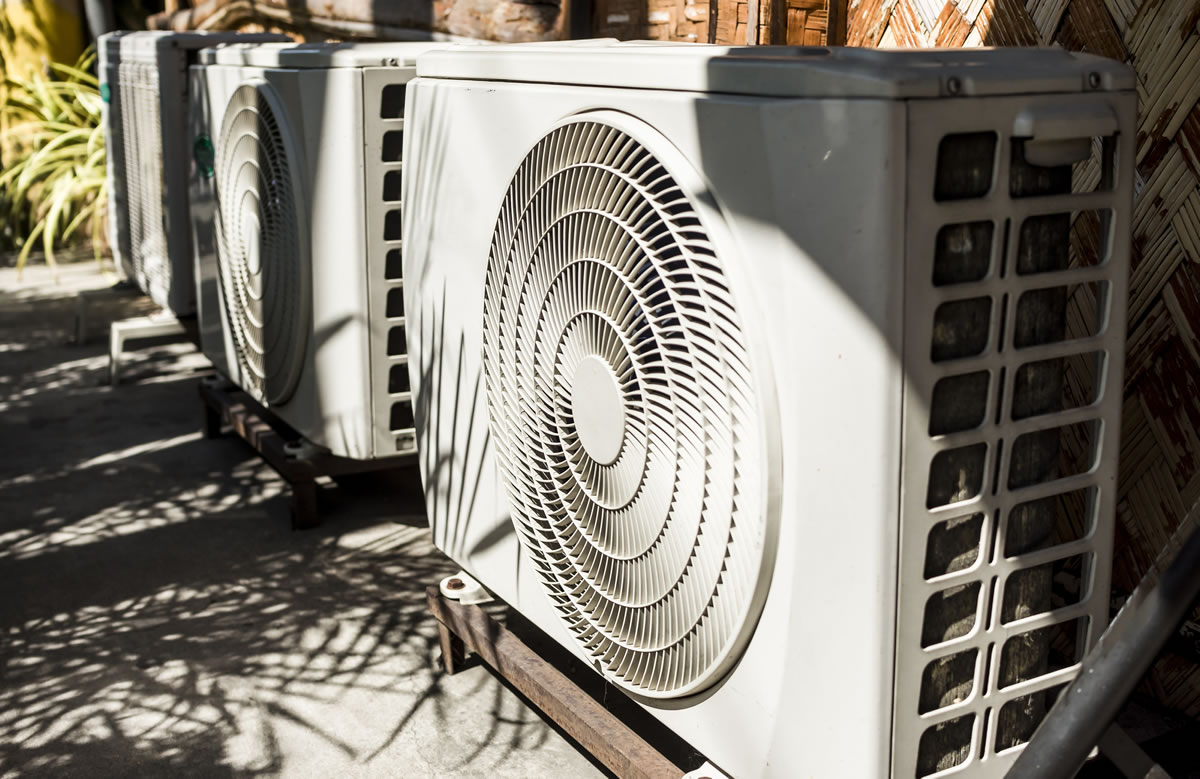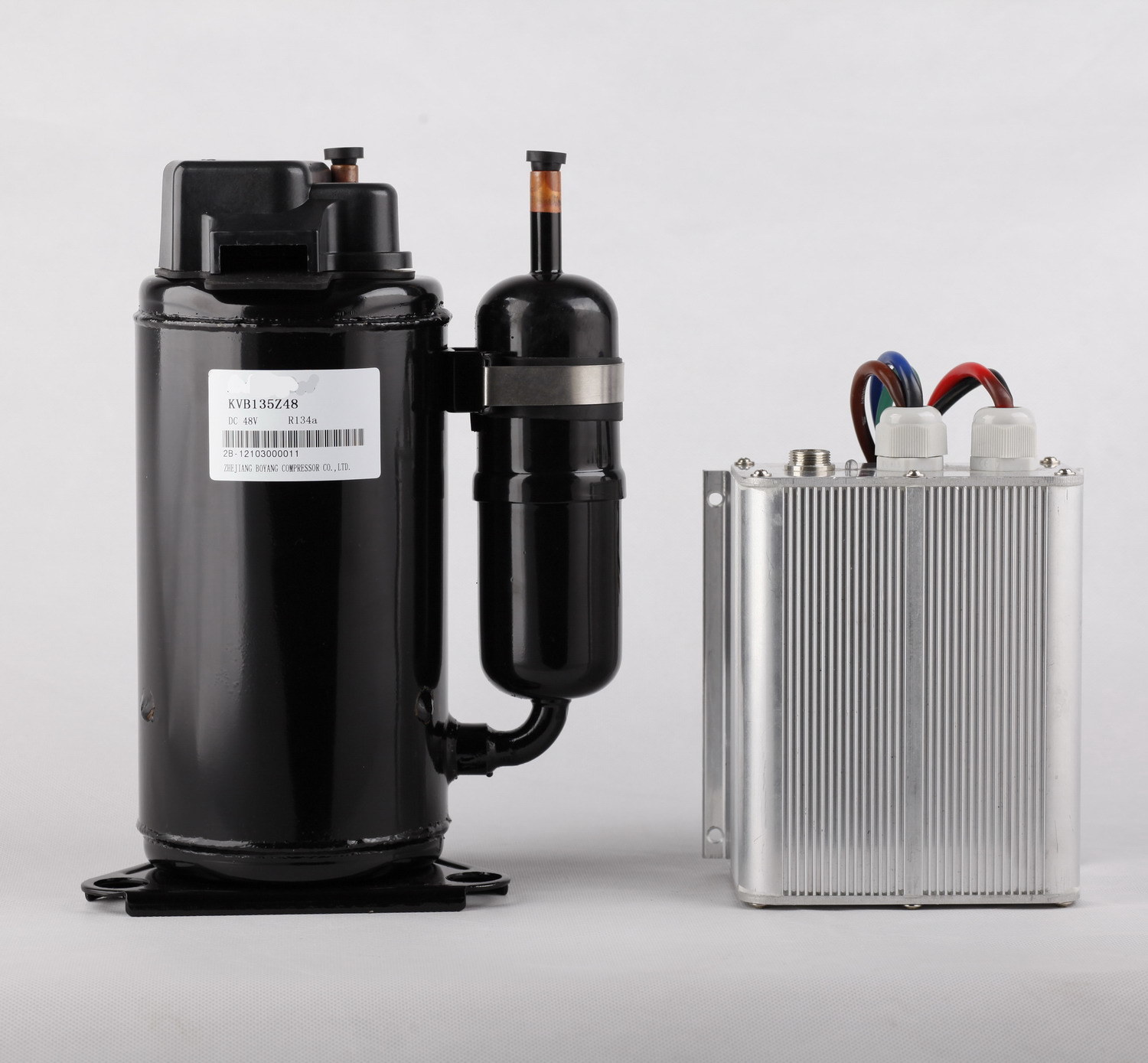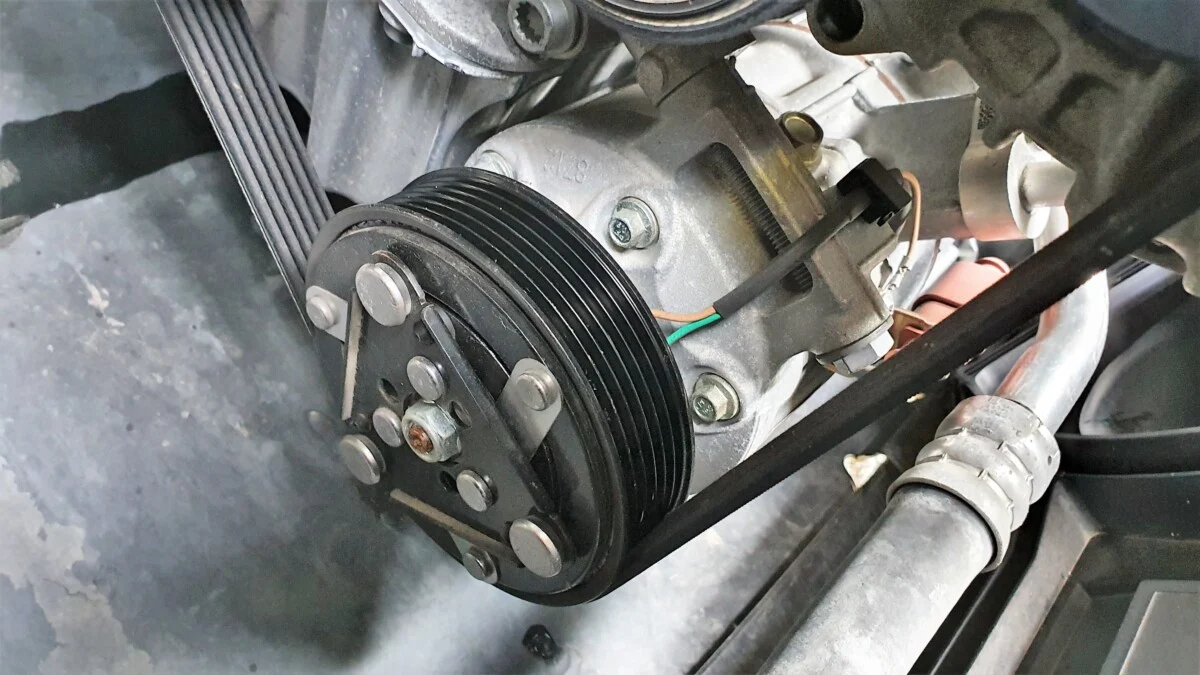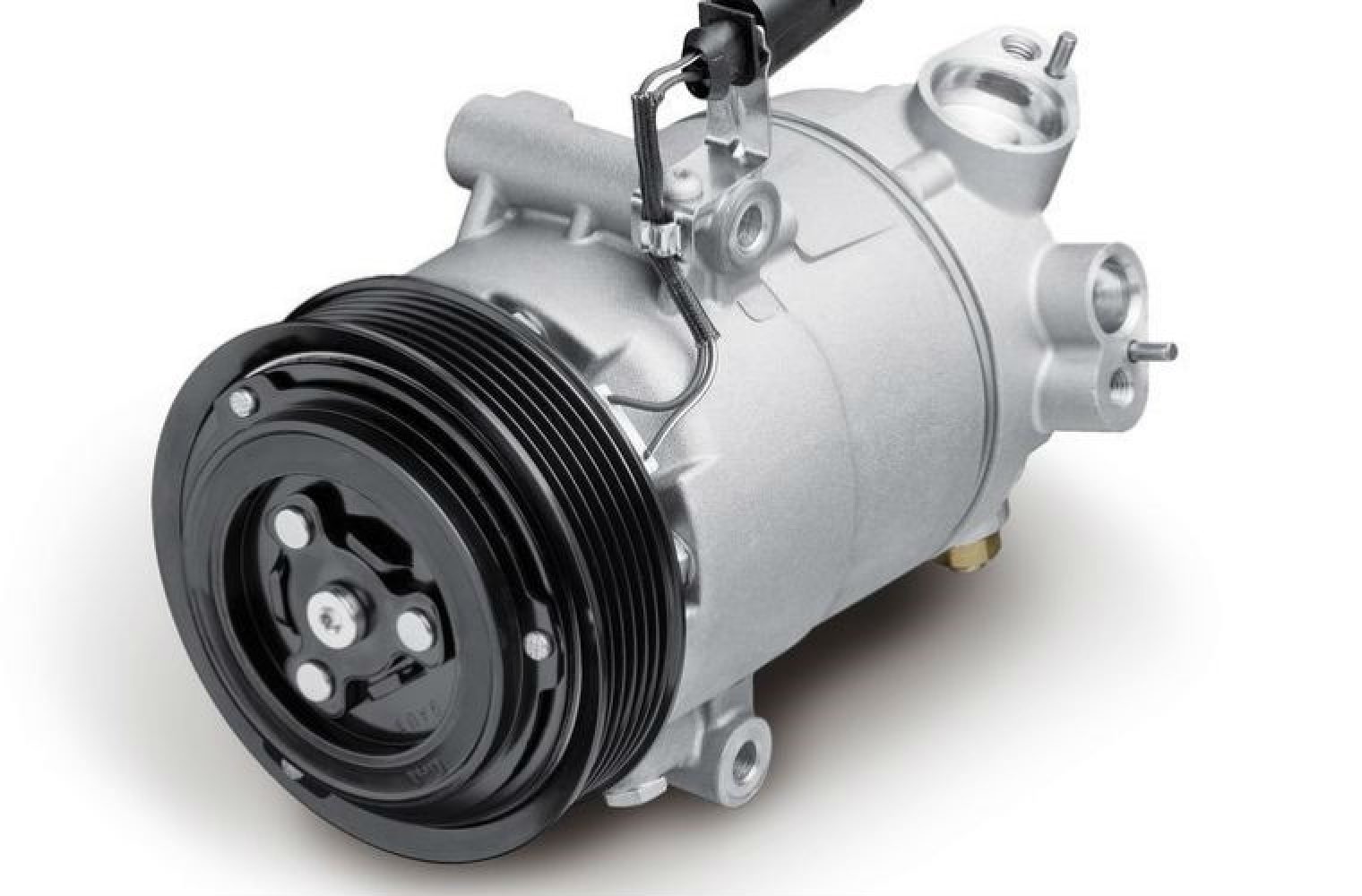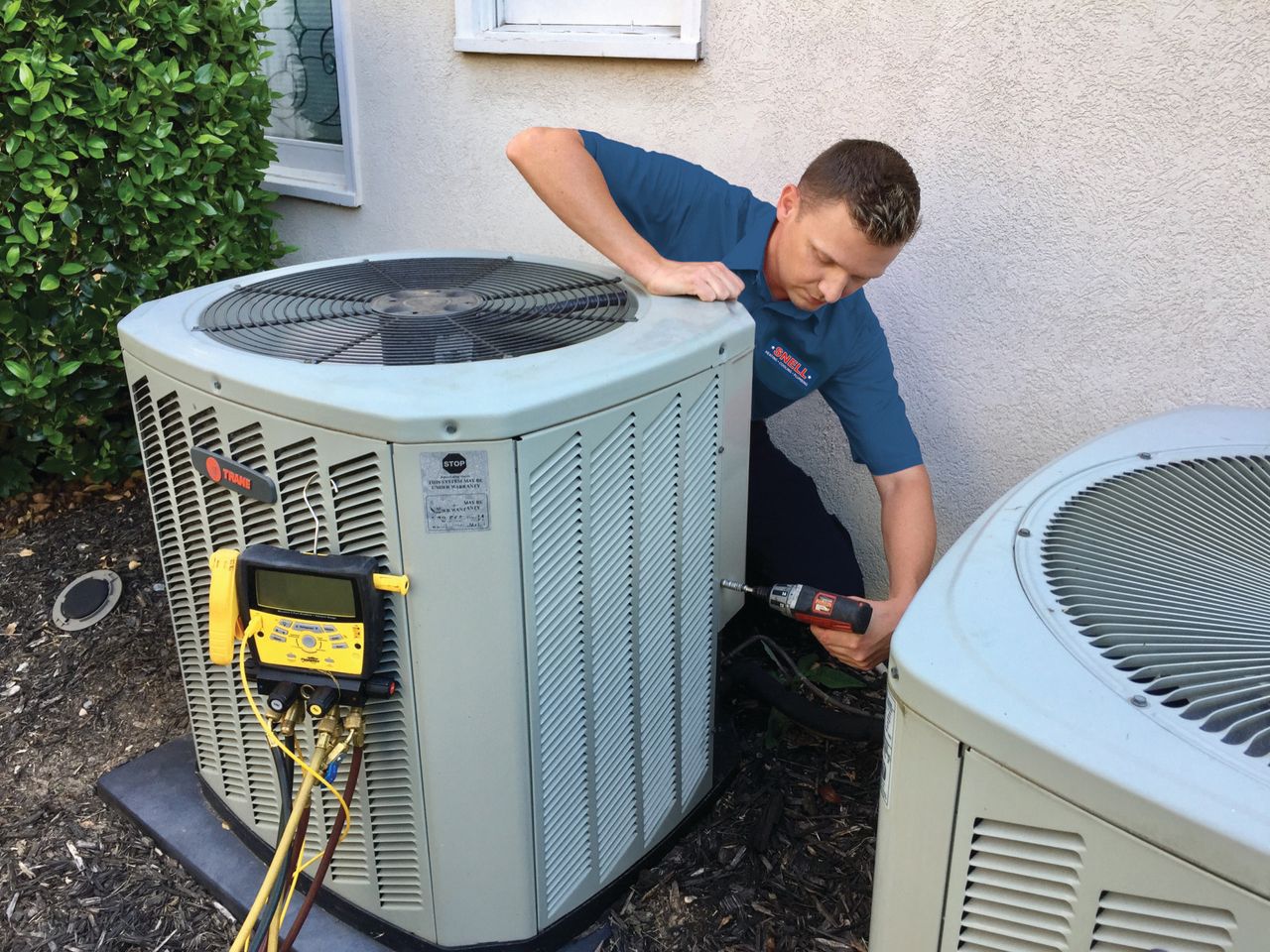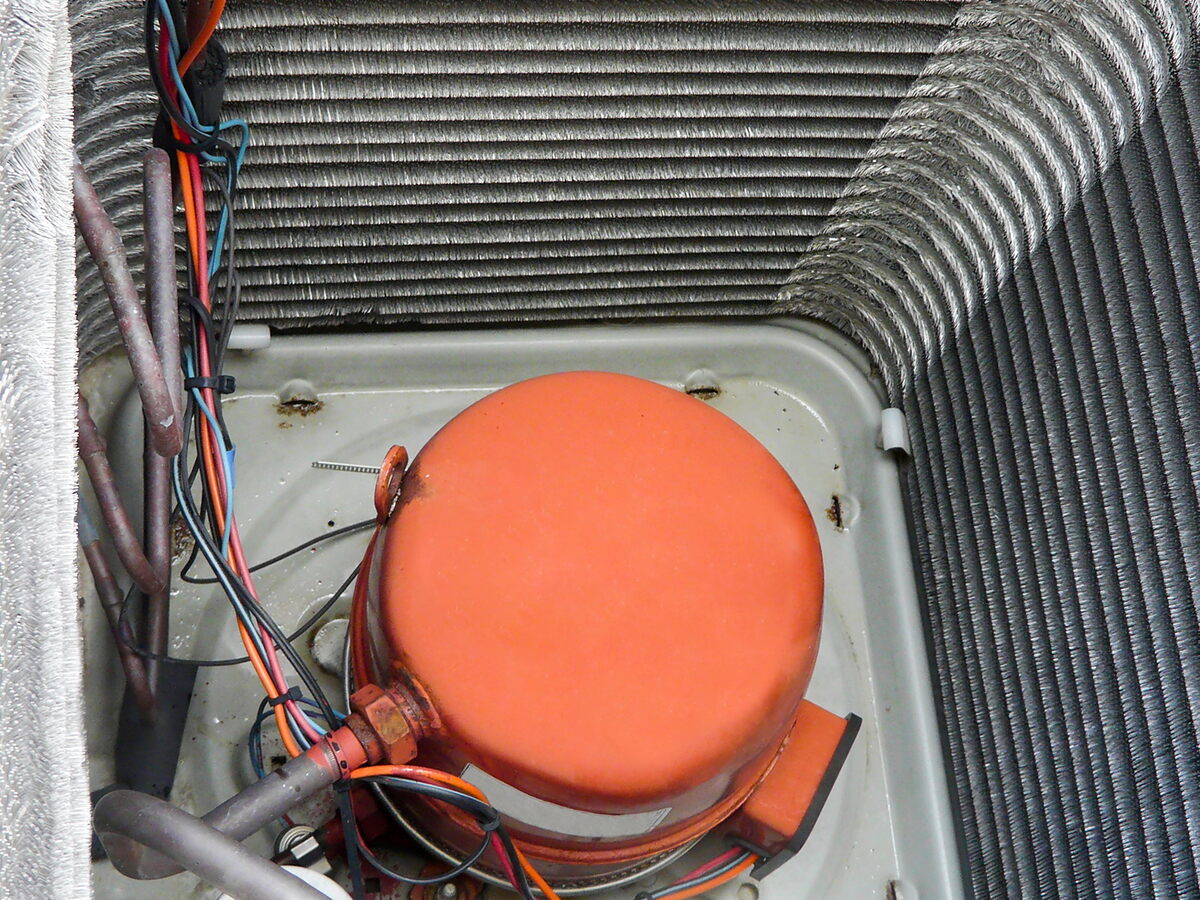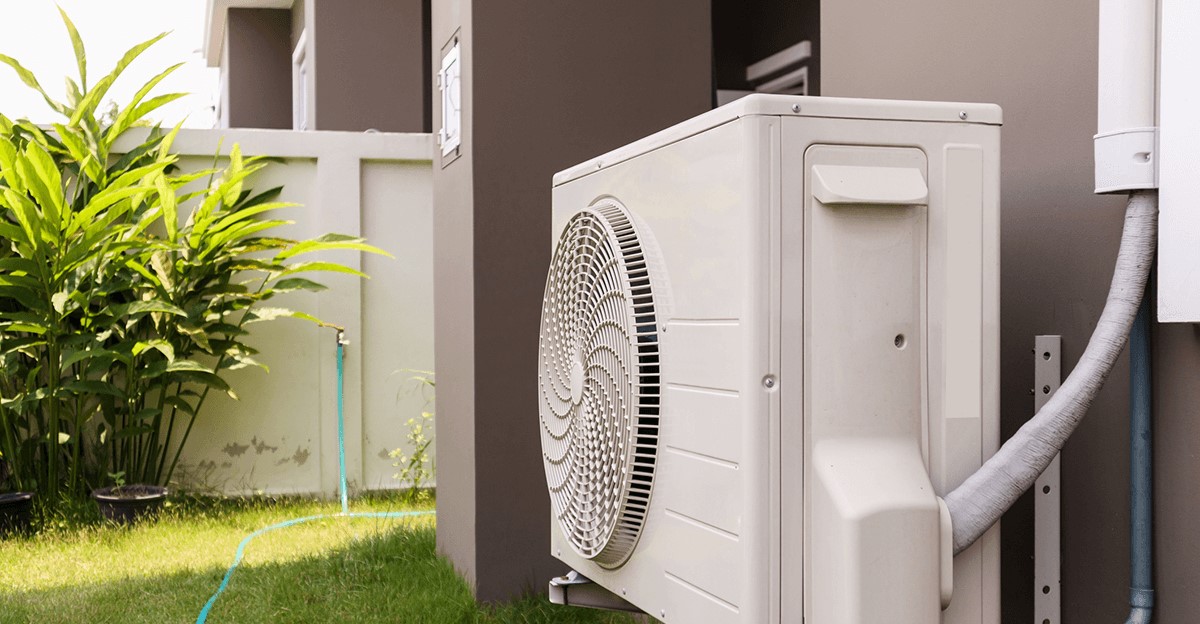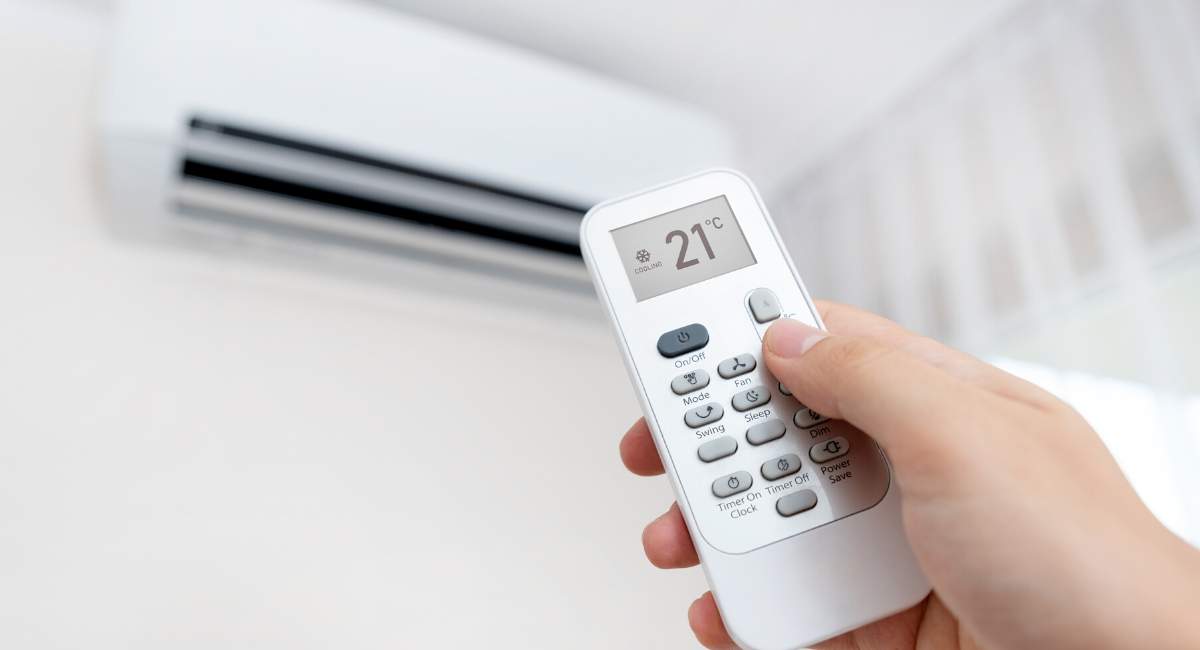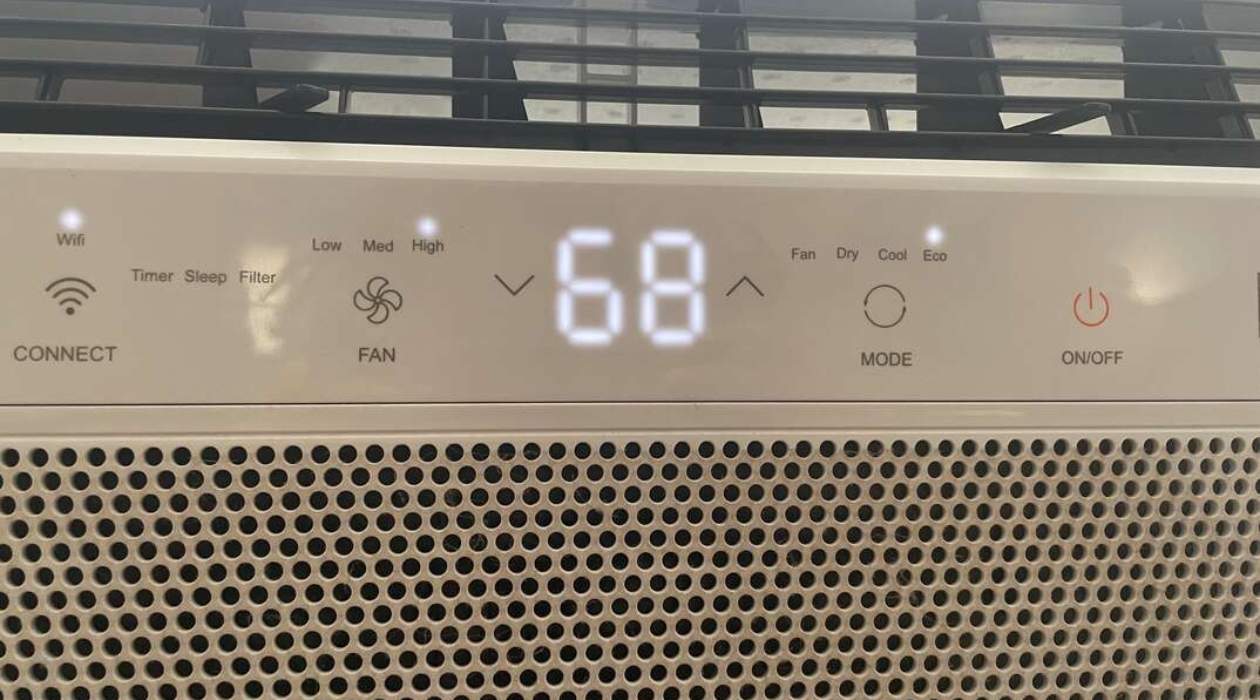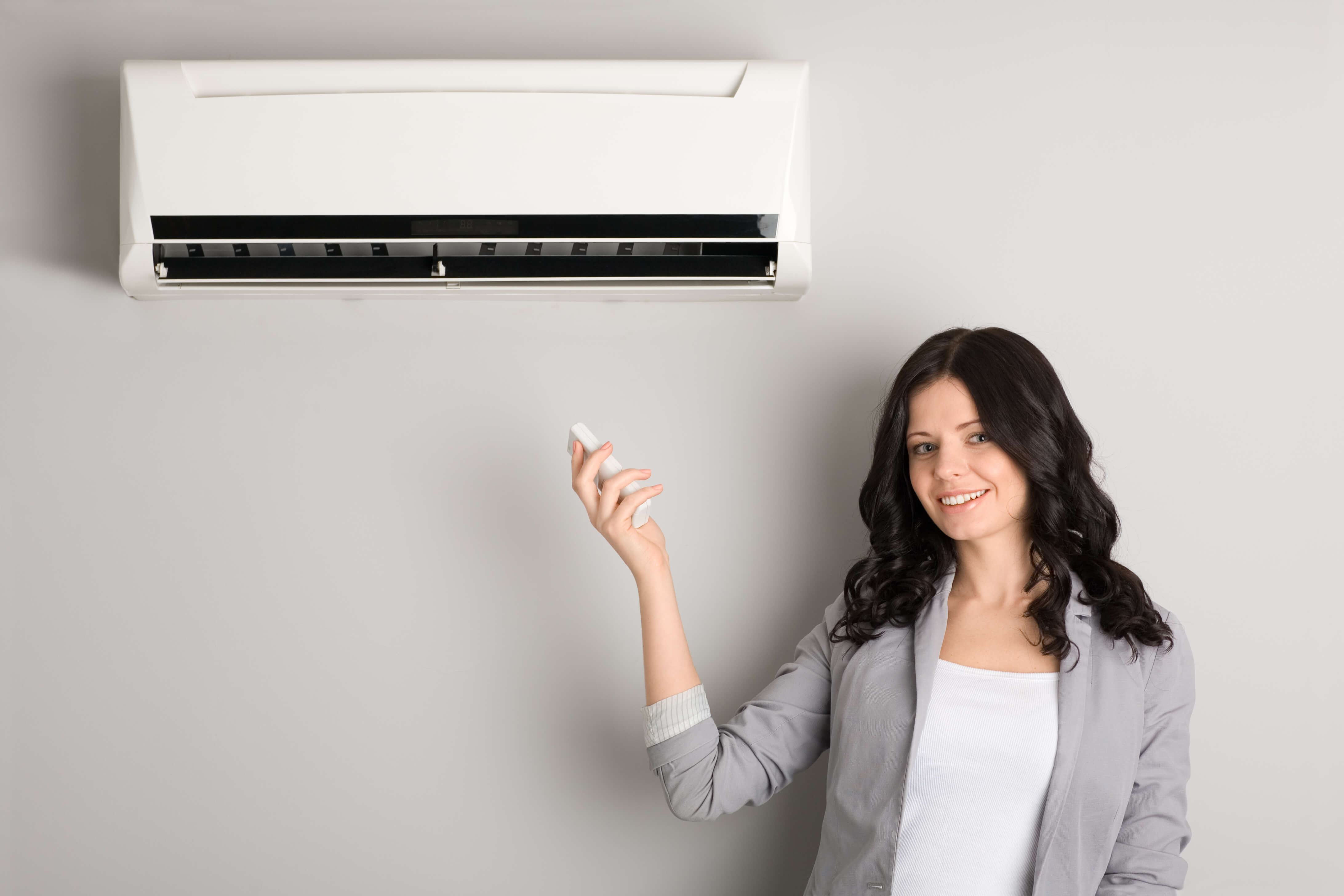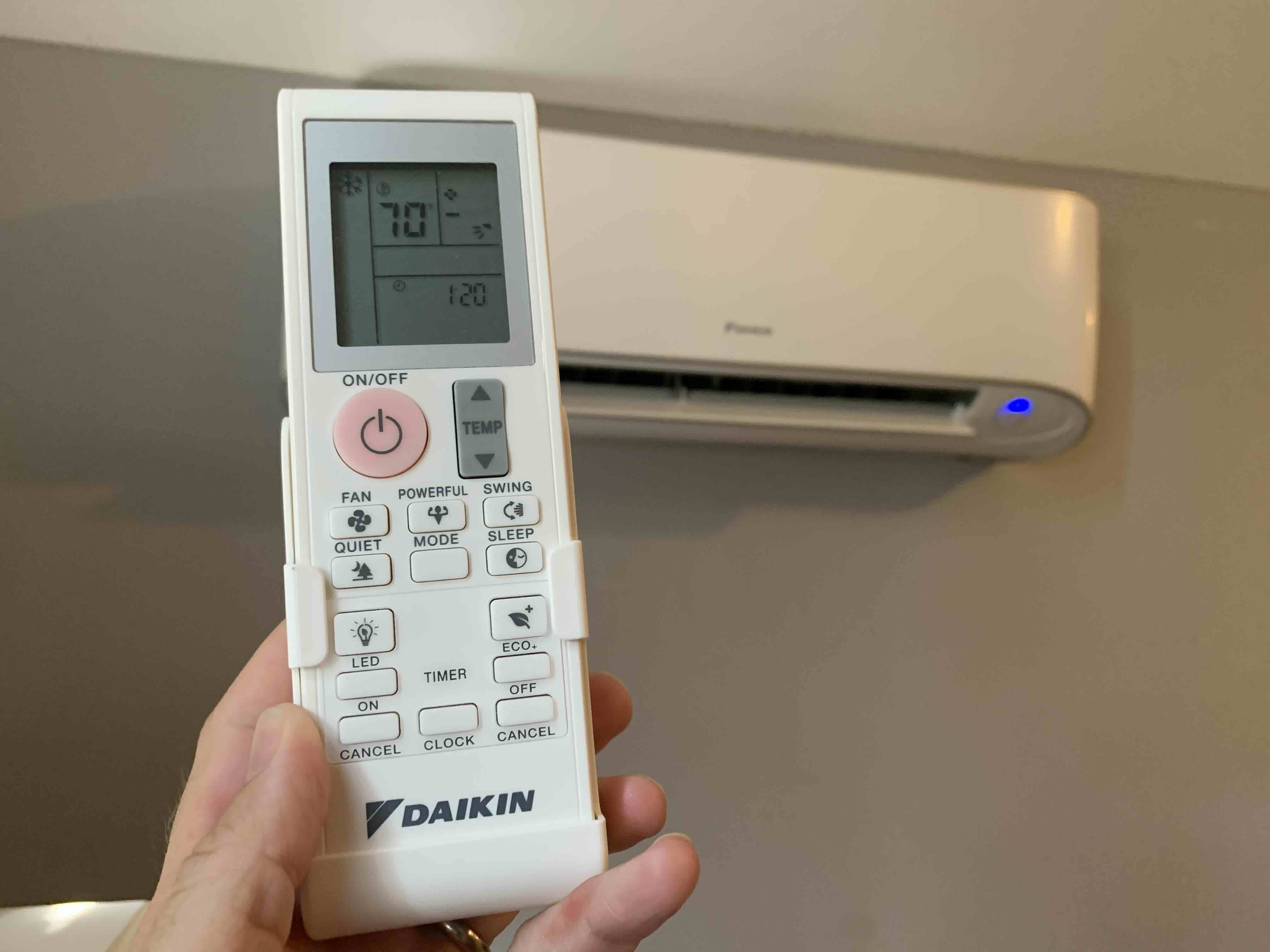Home>Home Maintenance>What Does An Air Conditioner Compressor Do
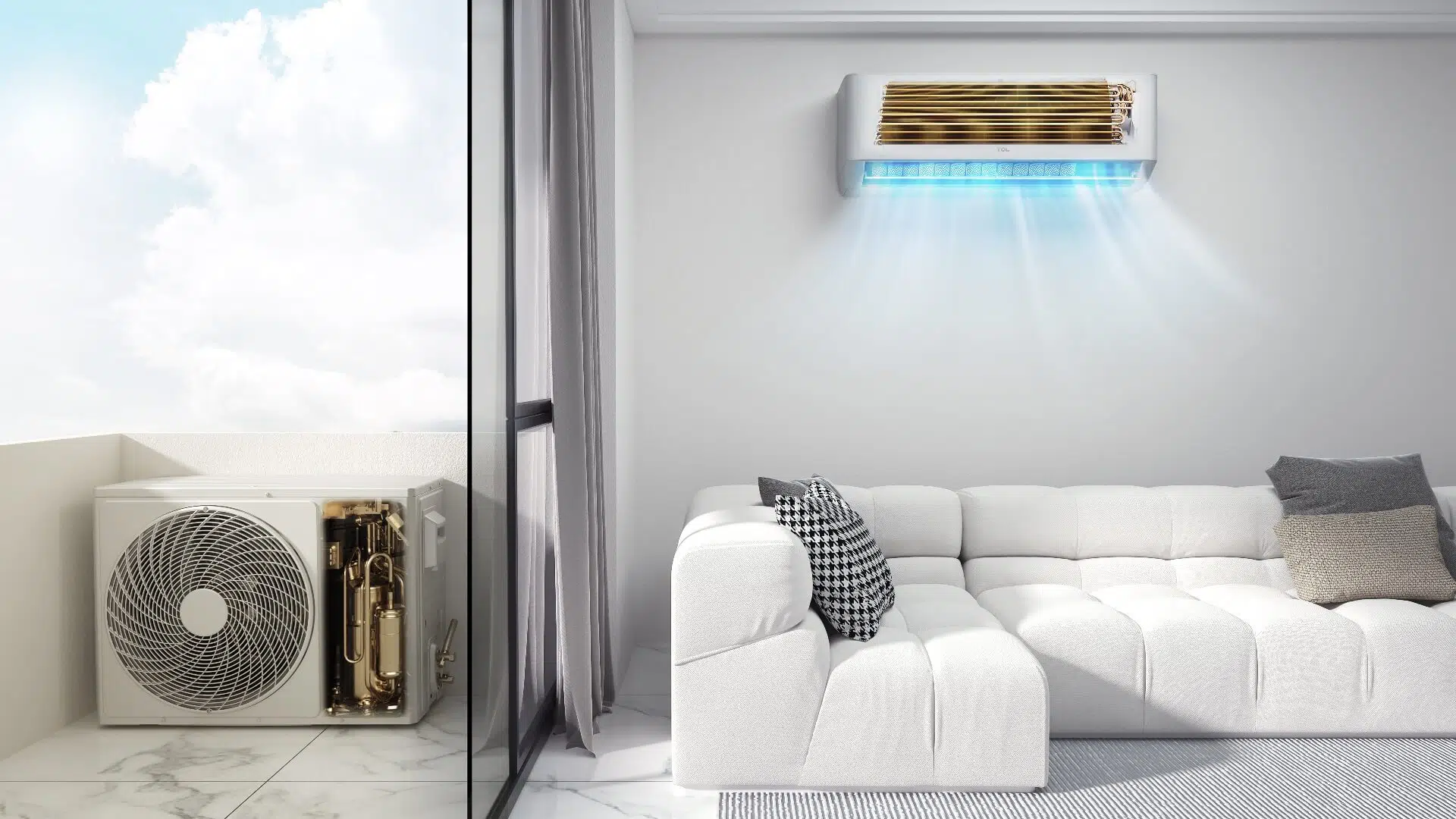

Home Maintenance
What Does An Air Conditioner Compressor Do
Modified: August 17, 2024
Discover the importance of an air conditioner compressor in home maintenance. Learn how it keeps your cooling system running efficiently and effectively.
(Many of the links in this article redirect to a specific reviewed product. Your purchase of these products through affiliate links helps to generate commission for Storables.com, at no extra cost. Learn more)
Introduction
Welcome to the world of air conditioning! As temperatures rise, the need for a cool and comfortable living space becomes more important than ever. One crucial component of an air conditioner that allows it to provide that much-needed relief is the air conditioner compressor. But what exactly does an air conditioner compressor do?
In this article, we will delve into the inner workings of air conditioner compressors, their importance in the cooling process, and how they contribute to maintaining a pleasant indoor environment. So, grab a cool drink, sit back, and let’s dive into the world of air conditioner compressors!
Key Takeaways:
- The air conditioner compressor is like the heart of the cooling system, pumping refrigerant to remove heat and maintain a comfortable indoor environment. Regular maintenance ensures efficient and long-lasting performance.
- Understanding the role of the air conditioner compressor and addressing potential issues through maintenance can help keep your home cool, save energy, and ensure a worry-free living environment.
Read more: What Does An Air Conditioner Do?
Components of an Air Conditioner
Before we explore the role of the air conditioner compressor, let’s first understand the various components of an air conditioning system. An air conditioner consists of four main components:
- Compressor: The heart of the system, the compressor is responsible for pressurizing the refrigerant gas, increasing its temperature and sending it to the condenser.
- Condenser: Located on the exterior of the air conditioner, the condenser releases heat from the refrigerant by converting it from a high-pressure gas to a high-pressure liquid.
- Evaporator: Situated in the indoor unit, the evaporator absorbs heat from the surrounding air, causing the refrigerant to evaporate and cool the air in the process.
- Expansion Valve: Found between the evaporator and the condenser, the expansion valve regulates the flow of the refrigerant and controls its pressure and temperature.
All these components work in synergy to effectively cool and dehumidify the indoor air, providing a comfortable environment for occupants.
Now that we have a basic understanding of the air conditioning system, let’s focus on the compressor and explore its role in the cooling process.
Role of the Air Conditioner Compressor
The air conditioner compressor plays a crucial role in the cooling process by pressurizing and circulating the refrigerant throughout the system. Its primary function is to compress the low-pressure refrigerant gas into a high-pressure gas, which then flows through the condenser to release heat and expel it outside. This process allows the refrigerant to absorb heat from the indoor air, leading to the cooling effect we feel.
Think of the compressor as the heart of the air conditioning system. Just as the heart pumps blood to circulate throughout the body, the compressor pumps refrigerant gas to circulate throughout the air conditioner. Without a functioning compressor, the cooling process would come to a halt.
In addition to its vital role in pressurizing the refrigerant, the compressor also helps maintain the desired temperature and humidity levels in the indoor environment. By compressing the refrigerant, the compressor raises its temperature and pressure, making it easier for the refrigerant to release heat in the condenser. This allows the air conditioner to effectively cool down the indoor air and remove excess moisture, providing a comfortable living space.
Furthermore, the compressor helps to increase the efficiency of the air conditioning system. By compressing the refrigerant gas, the compressor allows for better heat transfer, facilitating the removal of heat from the indoor air more effectively. This results in a more energy-efficient cooling process, ensuring optimal performance and lower energy consumption.
Now that we understand the important role of the air conditioner compressor, let’s delve into how it actually works and how it contributes to the overall cooling process.
How Does an Air Conditioner Compressor Work?
Now that we know the importance of the air conditioner compressor, let’s explore the inner workings of this vital component. The compressor functions based on the principles of thermodynamics and refrigeration cycle.
The process begins when the low-pressure refrigerant gas enters the compressor. The compressor, typically powered by an electric motor, is designed with a piston or a rotating scroll that compresses the gas, increasing its pressure and temperature.
As the refrigerant gas is compressed, the molecules move closer together, resulting in an increase in temperature. This high-pressure, high-temperature refrigerant gas is then sent to the condenser. In the condenser, the heat from the refrigerant is released to the surroundings, and the gas condenses into a high-pressure liquid.
After the condensation process, the high-pressure liquid refrigerant passes through the expansion valve, which regulates its flow rate into the evaporator. Inside the evaporator, the pressure of the refrigerant is significantly reduced. This causes the refrigerant to evaporate, absorbing heat from the surrounding air in the process.
Once the refrigerant has absorbed heat and cooled the air, it becomes a low-pressure gas again. This cool gas is then sent back to the compressor, repeating the cycle to maintain the desired temperature in the indoor environment.
The air conditioner compressor operates continuously as long as the cooling system is in use. It maintains the circulation of the refrigerant, ensuring that the cooling process is effective, efficient, and consistent.
It is important to note that air conditioner compressors come in different types, including reciprocating compressors, rotary compressors, and scroll compressors. While the fundamental principle remains the same, the design and operation may vary slightly for each type.
Overall, the air conditioner compressor plays a critical role in the cooling process, compressing and circulating the refrigerant to facilitate the removal of heat from the indoor air, resulting in a comfortable and pleasant environment.
The compressor in an air conditioner pressurizes and circulates the refrigerant, which absorbs heat from inside and releases it outside, cooling the air. Regular maintenance can help prolong the life of the compressor.
Factors Affecting the Compressor’s Performance
The performance of an air conditioner compressor can be impacted by various factors that affect its efficiency and effectiveness. Understanding these factors can help identify potential issues and ensure optimal performance. Here are some key factors that can influence the compressor’s performance:
- Refrigerant Levels: The compressor requires an adequate amount of refrigerant to function properly. Insufficient refrigerant levels can strain the compressor, leading to reduced cooling capacity and potential damage.
- Airflow: Proper airflow is essential for the compressor to operate efficiently. Restricted airflow due to dirty filters or blocked vents can cause the compressor to work harder, leading to decreased performance and potential overheating.
- Temperature: Extreme temperatures can impact the compressor’s performance. In high temperatures, the compressor may have to work harder to achieve the desired cooling effect. Conversely, in low temperatures, the compressor may struggle to operate efficiently, affecting its overall performance.
- Electrical Supply: The compressor relies on a steady and sufficient electrical supply to function optimally. Voltage fluctuations, power surges, or electrical issues can result in compressor malfunction or failure.
- Maintenance: Regular maintenance is crucial for the compressor’s performance and longevity. Neglecting maintenance tasks like cleaning coils, lubricating moving parts, and checking refrigerant levels can lead to decreased efficiency and potential compressor damage.
- Compressor Sizing: The size and capacity of the compressor should match the cooling needs of the space. An oversized or undersized compressor can lead to insufficient cooling or increased energy consumption.
- Ambient Conditions: The ambient conditions surrounding the compressor, such as humidity levels and air quality, can impact its performance. High humidity levels can stress the compressor and affect its efficiency, while poor air quality can lead to debris buildup and potential damage.
By considering and addressing these factors, homeowners can optimize the performance of their air conditioner compressor, ensuring efficient cooling and prolonging the lifespan of the system.
Read more: How To Replace An Air Conditioner Compressor
Common Issues with Air Conditioner Compressors
While air conditioner compressors are designed to be durable, they can experience problems over time. Understanding these common issues can help homeowners identify and address compressor-related issues promptly. Here are some of the most common issues with air conditioner compressors:
- Compressor Failure: Compressor failure is one of the most significant issues a homeowner can face. It can be caused by various factors such as electrical problems, refrigerant leaks, or excessive stress on the compressor. Compressor failure typically requires professional repair or replacement.
- Refrigerant Leaks: Refrigerant leaks can cause a decline in cooling performance and compromise the compressor’s efficiency. Low refrigerant levels force the compressor to work harder, potentially leading to overheating or compressor damage. Detecting and repairing refrigerant leaks is crucial to prevent further issues.
- Electrical Issues: Electrical problems, such as faulty wiring, damaged capacitors, or blown fuses, can impact the compressor’s functionality. These issues can lead to compressor failure or improper functioning. It is essential to address electrical issues promptly to prevent further damage.
- Motor Malfunctions: The electric motor that powers the compressor can experience issues, such as worn-out bearings, overheating, or motor failure. These motor malfunctions can result in reduced compressor performance or complete shutdown.
- Overheating: Insufficient airflow, dirty coils, or blocked vents can cause the compressor to overheat. Overheating puts excessive stress on the compressor, leading to reduced efficiency and potential damage. Regular maintenance and proper airflow maintenance can help prevent overheating issues.
- Noisy Operation: Unusual or loud noises coming from the compressor can indicate underlying issues. These noises can be caused by loose components, worn-out bearings, or motor problems. Timely inspection and repair can prevent further damage and restore quiet operation.
- Excessive Cycling: Rapid and frequent cycling of the compressor can indicate an issue with the system’s refrigerant or temperature controls. Excessive cycling puts stress on the compressor and can lead to energy wastage and decreased longevity. Professional diagnosis and repair are necessary to address this issue.
If you encounter any of these issues with your air conditioner compressor, it is recommended to consult a qualified HVAC technician to diagnose and resolve the problem. Timely attention to compressor issues can prevent further damage and ensure the efficient operation of your air conditioning system.
Importance of Regular Maintenance
Regular maintenance is essential for the optimal performance and longevity of your air conditioner, including the compressor. Here are some reasons why regular maintenance is crucial:
- Improved Efficiency: Regular maintenance, including cleaning or replacing air filters, cleaning coils, and checking refrigerant levels, ensures that your air conditioner operates at peak efficiency. A well-maintained compressor can cool the air more efficiently, reducing energy consumption and saving you money on utility bills.
- Prevention of Costly Repairs: Routine maintenance helps identify and address minor issues before they turn into major problems. By detecting and resolving compressor issues early on, you can prevent costly repairs or even the need for a complete replacement. Maintenance costs are typically far lower than the expenses associated with major repairs or replacements.
- Extended Lifespan: Regular maintenance can significantly extend the lifespan of your air conditioner compressor. By keeping the compressor clean and in good working condition, it experiences less strain and wear, resulting in a longer lifespan for the entire system. This allows you to get the most out of your investment and avoid premature replacement.
- Enhanced Indoor Air Quality: Proper maintenance includes cleaning or replacing air filters, which helps improve the indoor air quality in your home. Clean filters trap dust, pollen, and other particles, preventing them from circulating in the air. This promotes healthier indoor air and reduces the risk of respiratory issues and allergies.
- Consistent Comfort: Regular maintenance ensures that your air conditioner maintains consistent cooling performance, keeping your home comfortable year-round. A well-functioning compressor can effectively remove heat and humidity from the air, providing a pleasant living environment for you and your family.
- Safety and Peace of Mind: Regular maintenance not only improves the performance of your air conditioning system but also ensures its safety. HVAC technicians can inspect electrical connections, detect potential fire hazards, and identify any other safety concerns. Moreover, regular maintenance provides peace of mind, knowing that your air conditioner is properly maintained and less likely to encounter major issues.
It is recommended to schedule annual or bi-annual maintenance with a professional HVAC technician to ensure that your air conditioner, including the compressor, receives the necessary attention and care. These routine maintenance visits will help optimize the performance, energy efficiency, and lifespan of your air conditioning system, saving you money and providing you with a comfortable and worry-free living environment.
Conclusion
The air conditioner compressor plays a vital role in the cooling process, pressurizing and circulating the refrigerant to provide a comfortable indoor environment. Understanding the components and inner workings of an air conditioning system, including the compressor, helps us appreciate the complexity and importance of this essential component.
By compressing the refrigerant gas, the compressor effectively removes heat from the indoor air, contributing to a cool and pleasant living space. It works hand in hand with other components such as the condenser, evaporator, and expansion valve to maintain optimal temperature and humidity levels.
However, issues can arise with air conditioner compressors, impacting their performance and efficiency. From compressor failure to refrigerant leaks or electrical problems, these issues require prompt attention and professional maintenance to prevent further damage and ensure the overall efficiency of the system.
Regular maintenance is crucial for optimizing the performance and longevity of the air conditioner compressor. By scheduling routine maintenance visits and addressing issues promptly, you can enhance efficiency, prevent costly repairs, extend the lifespan of your system, improve indoor air quality, and enjoy consistent cooling comfort.
Remember, taking care of your air conditioner compressor not only benefits your comfort but also saves energy and reduces environmental impact. So, make sure to prioritize regular maintenance and consult a qualified HVAC technician for any compressor-related concerns.
Now that you have a better understanding of what an air conditioner compressor does and its importance, you can make informed decisions to keep your cooling system running smoothly. Stay cool and comfortable all year round!
Frequently Asked Questions about What Does An Air Conditioner Compressor Do
Was this page helpful?
At Storables.com, we guarantee accurate and reliable information. Our content, validated by Expert Board Contributors, is crafted following stringent Editorial Policies. We're committed to providing you with well-researched, expert-backed insights for all your informational needs.
